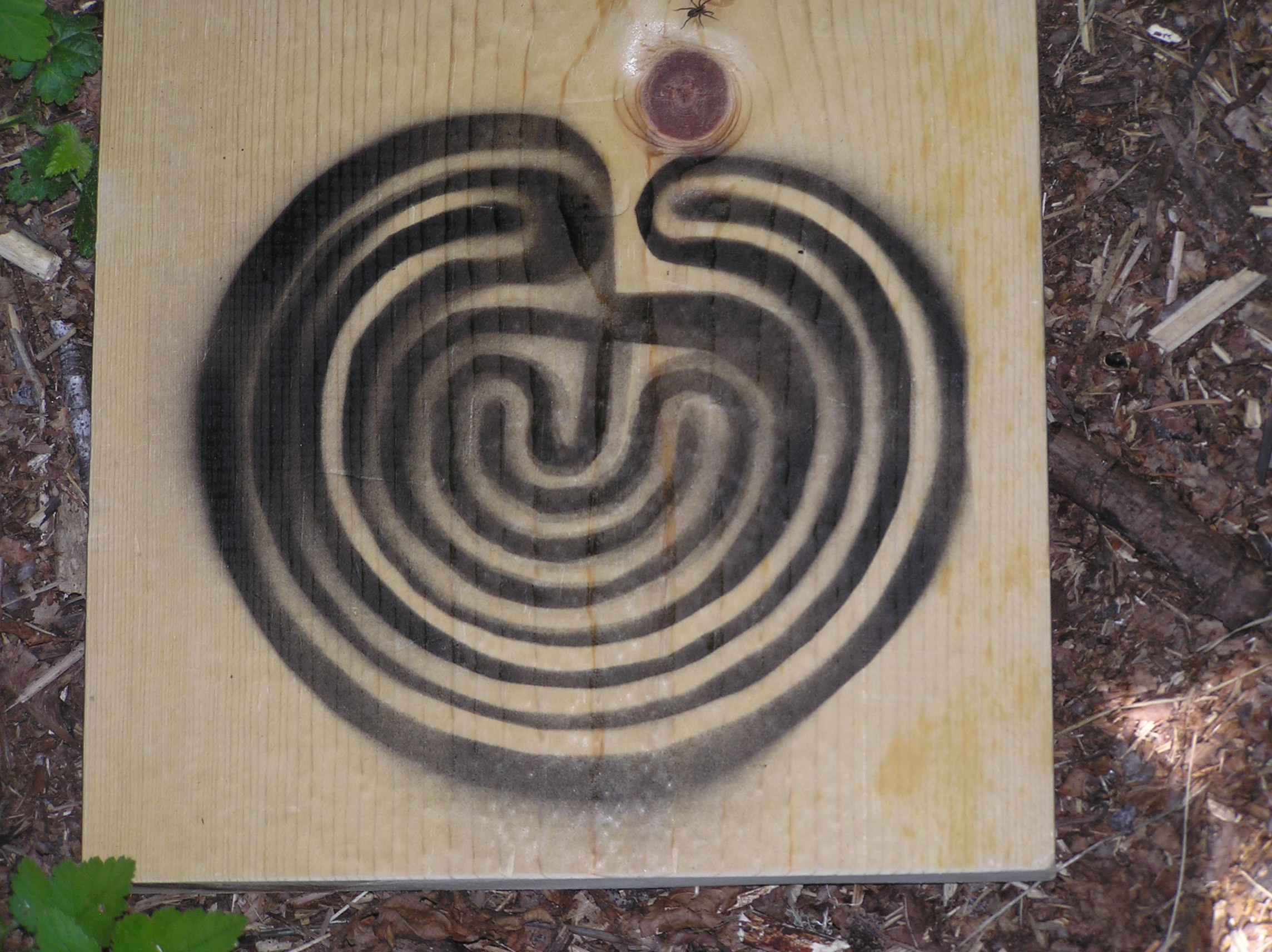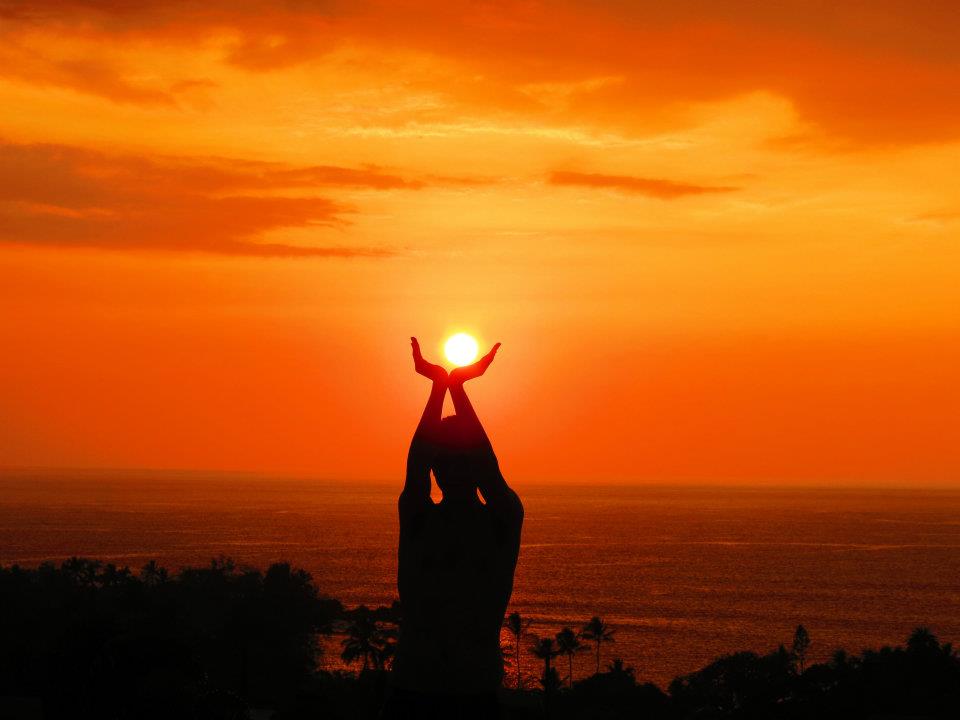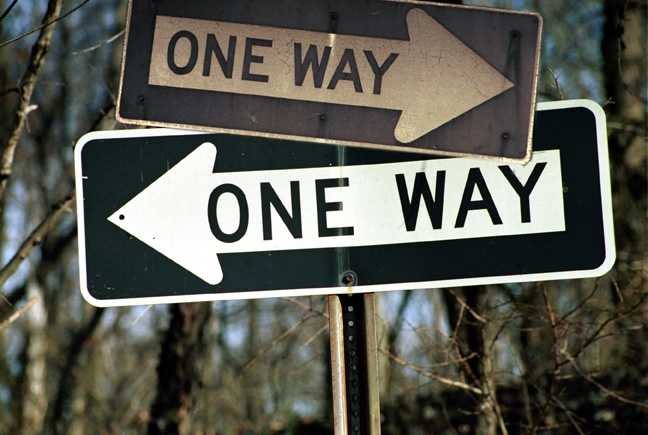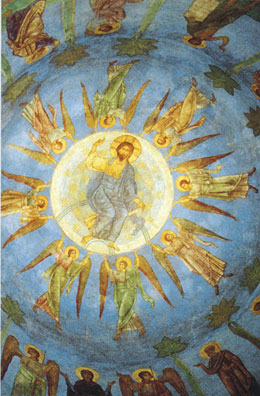Last year for my sixtieth birthday, someone gave me a finger labyrinth. I put it in my draw and promptly forgot about it. However, as I started to research various methods of prayer to incorporate in my new book Return to Our Senses: Reimagining How We Pray, I pulled it out again. To be honest this seemed a very strange way to pray especially when most of the articles I read suggested that the best way to trace out a finger labyrinth is with a finger from your non-dominant hand. Evidently, research suggests that our non-dominant hand has better access to our intuition.
Much to my surprise, when I experimented with my finger labyrinth, I found that it really did help me focus and often brought intuitive inspiration when I was grappling with challenging issues. This morning it inspired this prayer:
Walk with us Lord through all the twists and turns of life,
Walk with us when the clouds obscure the way,
when what seemed close is now so far away.
Walk with us Lord until we trust in you,
Lead us to the centre of your love.
Interestingly, some of the earliest labyrinths found in Christian churches are finger labyrinths, their circuits well worn over the centuries by the passage of innumerable fingers “walking” to the center and then out again.
In view of that you may like to try your own finger labyrinth experiment. Try this exercise from United Christ Church Ministries
Before you start any finger labyrinth “walk,” take time to breathe and relax. If you keep a journal, have it ready for recording any insights after your walk. Set an intention or question for the walk. Without an intention a finger labyrinth walk can become an exercise in hastily and mindlessly moving your finger along the circuits and wondering why at the end of the walk you even bothered. Say a prayer, if you like, for support, healing, and guidance.
Place a finger from your non-dominant hand at the entrance to the labyrinth. As you trace the circuit, stay open to whatever presents itself: feelings, sensations, memories, images, or just “knowings.” Pause at any time to breathe, be with a memory, work with an image, or simply relax into the labyrinth. At the center of the labyrinth, feel its connection to your own center. The center is a wonderful place to relax, pray, or sing. When you are ready, trace your way out, staying open to whatever comes up for you. When your walk is done, place both hands on the labyrinth and give thanks for whatever you learned and experienced.
Experiment and play with your labyrinth. Try using a favorite word or phrase that evokes the sacred for you. Repeat the mantra slowly in your heart as you “walk.” You may also walk with questions such as, “In what way do I most need to grow spiritually right now?” or “What most blocks me from fully receiving and living God’s love?” You can also walk the labyrinth in intercessory prayer for someone else, sending them the fruits of your walk.
If you are experiencing a difficult feeling-anger, grief, bitterness-have as your intention its healing and release (knowing, of course, that many deeper feelings may take more time than a walk).
If you are struggling with a problem, ask for insight and guidance: What must I release in order to allow healing? What am I not feeling or acknowledging that I must let into my conscious awareness to allow healing? Whom do I most need to forgive, and for what?
If you are working with an illness, either serious or insignificant, you may walk into the labyrinth simply asking to return to balance with yourself and life, no matter what the circumstances of your illness. You can also walk with the question: What part of my life (or me) am I neglecting that needs attention?
Illness may also be a teacher or an ally. If you are interested in exploring your illness as a teacher, you may walk asking, “How may I open to my illness as a teacher and ally?” or “What does my illness have to teach me at this point in my life?”
Sunday May 27th is Pentecost. This is the day when we celebrate:.
- The coming of the Holy Spirit and the infilling of Jesus’ disciples with the power to go out and change the world
- The great multi cultural gathering that we catch a glimpse of as we watch the spirit fall and suddenly everyone is able to understand each other – not all speaking the same language but able to understand each other in their own languages. Acts 2:11.
- Pentecost is traditionally the time that many churches pray for the peace of our world in which at times there seems to be so little cross cultural understanding.
Each year I like to add to my resource list from the previous years so that this becomes a rich array of helpful suggests for everyone. So what kinds of resources do we need? First I think we need to provide our congregations with resources that help them to see Jesus from other cultural perspectives. In a visual society like ours art is one very powerful way to do this. Liturgy is another powerful tool because as we read the words aloud they resonate deep within our souls and take root.
Matt Stone at Glocal Christianity still has the best collection of art from different cultural contexts – not just European, Asian, African, South American, Middle Eastern, Australian and Celtic but also other more unusual perspectives – goth, alien, feminist and tattoo. We may not agree with all these perspectives – after all how many of us can relate to Jesus as a Cyclon – but it important for us to see the different ways that people perceive if we want to “understand them in their own language”.
The Text This Week has one of the best online collections of links to Christian art I have come across – all indexed according to Biblical/liturgical subjects. They also provide an interesting list of movie clips that correspond to biblically related themes as well as a rich array of other resources on Pentecost
Another great collection of pentecost art is available at Biblical Art on the WWW
In terms of Pentecost liturgies there are endless possibilities out there so please don’t expect this to be a comprehensive list. My own liturgies from past years are
Others that I have enjoyed browsing this year are:
The Worship Well with great resources mainly from Australia & New Zealand
Sacredise.com always provides wonderful liturgical resources for the seasons including these excellent Pentecost resources
re:Worship has a very rich array of resources available – make sure you take time to follow the links provided to songs, liturgies and videos.
If you are looking for alternative approaches to worship for this season I would heartily recommend Jonny Baker’s worship tricks
Steve Taylor a – sustain:if:able kiwi is another very creative worship leader. I love his Ascension Day suggestion – the footprints of Jesus
My weekly roundup of facebook prayers posted at Light for the Journey
Peace O Lord to all whose lives entwine with ours,
Peace to all who walk this earth with us.
Peace to friend and to stranger, to neighbours near and far,
Peace to all who struggle,
Peace to the lost, the broken and the hurting.
Peace from the Christ who has redeemed and saved us,
Peace from the One who sits at the right hand of God,
An advocate for all God’s children,
May we follow him into the new creation and join him in making all things whole.
————————————-
Lord Jesus Christ may I live today centred in your presence
May I walk the path of your choosing
Through all its twists and turns may I sense your guidance,
Be embraced by your love and be filled with your compassion.
———————————————
God lead us home to your loving heart,
To the place where everything shines with your glory,
May all that we do move us forward
Help us see how to live so that your will is done on earth as it is in heaven.
————————————
Lord Jesus Christ teach us to pray,
May we banish from our hearts all that does not reflect you,
And not occupy ourselves with the trifles of this world,
May we attune our thoughts to yours,
And look to you with the eyes of faith.
————————————
Lord Jesus Christ may we remember today that you are always with us.
May we sense the closeness of your presence,
Think of you often and enjoy the wonder of your love.
————————————-
Lord Jesus Christ you are infinitely good,
Let us thank you for strength and patience in all things,
May we hope in you always and be encouraged by your love.
————————————
This morning I had hoped that we would have good news to share about a potential grant for the Cascadia project. Unfortunately that is not so. Our grant application was rejected and so we are in re-imagining mode. Is this really bad news though?
Not surprisingly, this morning I have been thinking about failure and the number of articles I have read over the last few months that suggest it is actually good for us.
in today’s post-recession economy, some employers are no longer shying away from failure—they’re embracing it. According to a recent article in BusinessWeek, many companies are deliberately seeking out those with track records reflecting both failure and success, believing that those who have been in the trenches, survived battle and come out on the other side have irreplaceable experience and perseverance. They’re veterans of failure. Read the entire article
Another article on Seven Reasons Why Failure is a Good Thing suggested that failure has many positive benefits. It helps us learn, grow, become resilient, create new opportunities and in long run succeed.
Failure to get the results you wanted is not a negative thing; it is simply an opportunity to try a different method. It is also the opportunity to start again….. Fail fast and recover quickly to try again. Use every failure as an opportunity to learn and to grow as a person. Remember that every failure is like one step on the stairway to success. Above all else, remember this: If you never fail, you will never succeed. Read this article
What I don’t like in these articles is the implication that worldly success is the goal towards which we are moving and God’s successes I am aware often look very different from the world’s successes. Reading the Bible encourages me to think that God sees what we think of as failure in very different terms too. Most people in Jesus time would have thought that his life ended in failure. He had the most successful healing ministry in the history of the world yet deliberately turned his back on it to walk towards Jerusalem and the cross. The moment he did that people started to turn away. Even his closest disciples could not understand that the Cross was the greatest success in human history.
I often think that when everything is going well for us we are tempted consciously or unconsciously to rely on ourselves and not on God. When things don’t turn out the way we hope it sends us back to our knees to pray, to discern and to seek the loving heart of God. So this morning that is where I am at, seeking above all to sit in that place where God’s love flows in, over and around me. So I thought that I would end with this quote from Elaine Heath’s The Mystic Way of Evangelism, which has given me great encouragement as I pray
The minister of the future, Nouwen wrote, must be a mystic, one “whose identity is deeply rooted in God’s first love.” Those who would lead us through the night must be schooled in contemplative prayer., for they can give only what they have received. Coming home to God’s first love, they will come home to their true selves. Then they will know how to lead us toward heaven and will help us see how to live so that God’s will “is done on earth as it is in heaven.” The call to give ourselves in ministry is first and always a call to come home to love.” (p83)
So please pray with us that in place of God’s love and kindness we will discern God’s way forward.
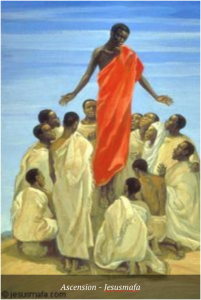
Today is Ascension Day, but like many of us I am already thinking about Pentecost in 10 days time. Then we celebrate the coming of the Holy Spirit, though for many churches it has become a day of prayer for peace. The following prayer came to me this morning as I thought about these two celebrations and the amazing impact on our world of Christ’s ascension, the coming of the Holy Spirit and our heart burning desire to see God’s peace come in our world.
Peace O Lord to all whose lives entwine with ours,
Peace to all who walk this earth with us.
Peace to friend and to stranger, to neighbours near and far,
Peace to all who struggle,
Peace to the lost, the broken and the hurting.
Peace from the Christ who has redeemed and saved us,
Peace from the One who sits at the right hand of God,
An advocate for all God’s children,
May we follow him into the new creation and join him in making all things whole.
Last year I spent time reflecting on these two events as well and thought I would repost that reflection here too.
Jesus Christ ascended into heaven
First born of a new creation
Marking the way with his blood
Shining as a light for all to see
An advocate in heaven
Now at the right hand of God
Holy Spirit descended from above
Indwelling presence of God
Opening our hearts to the Good News of Christ
Leading us into all truth
An advocate within
Forever with all who are called by God’s name
Thursday is Ascension Day the day on which we remember Jesus ascension into heaven 40 days after he rose from the dead. What I did not realize until recently is that for many this is also a celebration of the new creation that God brought into being by the ascension of Jesus. What beautiful imagery to carry with us for the rest of the season until Pentecost.
This is not a celebration that I grew up with, nor is it one that I have taken much notice of in the last few years. I was amazed this morning therefore at the beautiful and enriching prayers and scriptures I came across from many different traditions and thought that I would share some of them with you. I have posted some of these in previous years but have refreshed the links and added more resources.
I love the exultant note of this prayer from Rev. Marilyn E. Thornton the Lead Editor for African American Resources at the United Methodist Publishing House
One: Let us gather as they gathered on the Mount of Olivet.
Let us remember the teachings of the law, psalms, and prophets.
Many: Ride on King Jesus, no one can hinder you!
Here is another from the reformed tradition With A Shout
And this by David Diephouse who teaches history at Calvin College
Our God goes up with shouts of joy!
Our Lord ascends to the sound of trumpets!
All: Sing praises to our God, sing praises!
Sing praises, sing praises to our King!
The Almighty rides in triumph.
The Almighty leads captivity captive.
Who shouts for joy? Who blows the trumpet?
The hosts of heaven sing the honor of his name;
they praise him with an endless alleluia.
And this prayer from the Catholic service for Ascension Day
God our Father,
make us joyful in the ascension of your Son Jesus Christ.
May we follow him into the new creation,
for his ascension is our glory and our hope.
We ask this through our Lord Jesus Christ, your Son,
who lives and reigns with you and the Holy Spirit,
one God, for ever and ever. Amen.
John Van de Laar at Sacredise.com always has great resources for the seasons including suggested hymns, prayers and video media resources. Check out the ascension day resources here
I particularly enjoyed this video The Ascension and Jesus Christ on The Work of the People (love their work).
Here is another good set of videos/loops from re:Worship
And as always textweek.com has a very comprehensive list of resources for celebrating Ascension Day
Obviously there are lots of other great resources out there too so if you have found something that is particularly helpful please leave a link in the comments below.
Jesus resurrection is amazing, the fact that he acts as advocate for us before God is awe inspiring and reassuring because we know that every time we mess up (and all of us do) Jesus is there pleading for us before God. And how I feel about that could not be better expressed than in the words of Psalm 47 written three thousand years ago
Come, everyone! Clap your hands!
Shout to God with joyful praise!
2 For the Lord Most High is awesome.
He is the great King of all the earth.
3 He subdues the nations before us,
putting our enemies beneath our feet.
4 He chose the Promised Land as our inheritance,
the proud possession of Jacob’s descendants, whom he loves.
Interlude5God has ascended with a mighty shout.
The Lord has ascended with trumpets blaring.
6 Sing praises to God, sing praises;
sing praises to our King, sing praises!
7 For God is the King over all the earth.
Praise him with a psalm!
8 God reigns above the nations,
sitting on his holy throne.
9 The rulers of the world have gathered together
with the people of the God of Abraham.
For all the kings of the earth belong to God.
He is highly honored everywhere. (via Biblegateway.com)
And last but hopefully not least a prayer/poem I wrote some years ago that I think is appropriate for this season. I have frequently been told it should be put to music so if anyone feels inspired to do that let me know..
God whose glory fills our world
God whose life is closer than breath
God whose love is stronger than death
God, this God of life and love
Has sent an advocate to save us
Jesus Christ the righteous, now at the right hand of God
Not to condemn but to bring full life
Not to accuse but to redeem
Not to reject but to draw close
God, this God of life and love
Has sent an advocate to save us
Jesus Christ the righteous, now at the right hand of God
God who hears the cry of our seeking souls
God who sees the pain of our suffering bodies
God who feels the loss of our grieving spirits
God, this God of life and love
Has sent an advocate to be with us forever
The Spirit of truth abides with us eternally
Before us to teach and lead,
Within us to comfort and heal,
Around us to shield and protect,
God, this God of life and love
Has sent an advocate to be with us forever
The Spirit of truth abides with us eternally
Here is my weekly round up of prayers that I have posted on facebook. If you want to read these as they are posted each morning you can like the Light for the Journey page
May all things today draw us closer to Christ
May the love of God bubble up from within us
And overflow in acts of kindness, generosity and peace
————————-
Lord Jesus Christ you are faithful and true
You are righteous and holy
You are loving and merciful
May we join ourselves to you today and follow the paths of life
—————————
Let us always remember the wonder of God’ love
Let us always remember the beauty of God’s world
Let us always remember the joy of God’s faithfulness
Let us remember and give thanks
—————————
Let each breath that you take breathe in God
Let each step that you make live for God
Let each word that you say glorify the One who fills our world with life and love
—————————-
Jesus teach us to pray as you did,
Not in thought and speech but in truth and action,
Jesus teach us to love as you did,
In compassion and mercy, with patience and kindness,
Jesus teach to live as you did,
Considering the needs of others as more important than your own.
—————————–
Let the love of God soak into your heart,
Let the peace of God soak into your soul,
Let the life of God soak into your spirit,
May they transform you and make you whole.
As an Amazon Associate, I receive a small amount for purchases made through appropriate links.
Thank you for supporting Godspace in this way.
When referencing or quoting Godspace Light, please be sure to include the Author (Christine Sine unless otherwise noted), the Title of the article or resource, the Source link where appropriate, and ©Godspacelight.com. Thank you!

